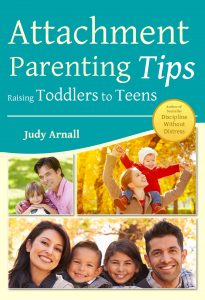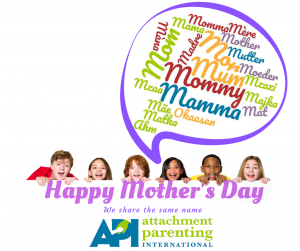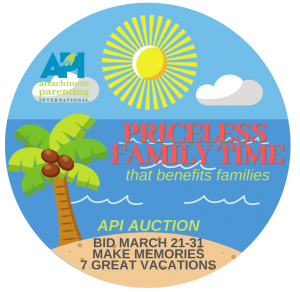My first children’s book was written from my heart, soul, and mind. I wanted to help children and had such a feeling of accomplishment when I imagined all the lives that might be changed because of my book. So, you can imagine my disappointment when I saw negative reviews of the book on Amazon. My heart was crushed and I was devastated when I saw those negative reviews.
WHAT DO WE DO WITH THE PAIN?
Those labor pains of negative reviews gave birth to my new company, Kid Care Approved, Inc. In 2010, about 10 years into my counseling profession, we were on the edge of a crisis. The stepfamily was poised to become the most prevalent family in America and these new stepfamilies were divorcing at a rate of over 70%.
The children between the ages of 3 – 10 years of age that walked into my counseling office shared their struggles with me about their new stepfamilies. My award-winning children’sbook, My Mommy’s Getting Married, was a translation of those children’s voices that poured their hearts out to me. I wanted to help these children and their parents with this book.
My Mommy’s Getting Married is based on research and tells the story of the two most important things parents can do to help their children adjust to a new stepparent:
- Spend one-on-one time with their own biological children.
- Have repeated loyalty bind talks over and over with their children.
A loyalty bind is when the child feels as if he/she is betraying the biological parent if they care for the new stepparent. The biological parent needs to have loyalty talks continually with his/her child. These talks can help loosen the loyalty binds and help the child begin to care about his/her new family members.
Those negative reviews on Amazon were inaccurate. They said that children at these ages—between four and eight—weren’t thinking about the things that I wrote about in this book. The research proved otherwise. It showed that children were thinking about these things and they were acting out because they didn’t have a voice. The children’s voices in my office were sharing these struggles with me and my children’s book, My Mommy’s Getting Married, is a summary of the pain these children were feeling in their new stepfamilies.
KID CARE APPROVED
Because of these inaccurate reviews, an epiphany came to me and I said, “I need a “Psychologist’s Seal of Approval.” With that thought in mind, I’ve embarked on my mission to turn Kid Care Approved, Inc. into a trusted platform for parents, a place to find top research-backed books and tools.
Kid Care Approved is changing the way parents and teachers choose media. We are a review aggregator, similar to Rotten Tomatoes, that reviews and curates children’s books and tools. We grant a Kid Care Seal of Approval to the best books and tools with scientific research to back them up.
Honoring and respecting our great research institutions, we are bringing the most up-to-date research to anyone who interacts with children: authors, media creators, publishers, filmmakers, teachers, psychologists, and parents, just like you. We are helping parents and educators to guide and not punish and to find quality materials that offer sensitive and effective ways to educate their children.
Starting this new project was both scary and exciting. Parents are bombarded with tons of daily advice. I had a lot of concerns:
- How will we differentiate ourselves from other sites that are out there?
- How will we find parents to connect with?
- Will parents find our platform valuable?
While Kid Care Approved is just at the beginning of our journey, I am absolutely blown away by the outpouring of support we’ve received. Our social media is reaching thousands of parents each month and website traffic and subscribers are growing at incredible rates. Unfiltered conversations that we have in our private Facebook group once again validate the need for curating high-quality, research-backed media for parents.
WHO WE ARE AND WHAT WE DO
Kid Care Approved also supports parents by packaging top research tools into small “digestible” bites. There is no shortage of research out there, but it is frequently overwhelming and impossible to act on. We regularly release downloadable research-backed tools. These tools tackle different issues parents face daily from sleep to food supplements to stress and self-care. A couple of our powerful and most sought-after tools are:
- Parenting Style Assessment:A two-page questionnaire that helps parents evaluate their own style and its impact on their child’s well-being and development.
- ADHD Assessment Questionnaire: Research shows that ADD and ADHD symptoms can be a byproduct of not getting enough sleep. This tool helps uncover the lack of sleep that is frequently mistaken for ADHD.
We are a team of experimental psychologists, clinical psychologists, and psychology students engaged in child development research at top universities across the country. Our team includes respected educators such as Dr. Yarrow Dunham at Yale University, Dr. Nicole McNeil at the University of Notre Dame, and Dr. Christa Lynch at Arizona State University, among others. We carefully vet all of our reviewers to ensure we have an experts-only team.
We review books and tools that offer the best-researched methods for parents in educating their children. Our books aren’t afraid to tackle tough topics like anxiety, depression, grief, and loss. These books can help children develop resiliency and gain an understanding of their emotions. We want them to know their feelings are mentionable and manageable. The books also offer parents realistic expectations for their children’s behavior. Here are excerpts from two of our reviews.
FEATURED BOOK REVIEWS FROM KID CARE APPROVED
 You Should You Should!
You Should You Should!
Written and illustrated by Ginny Tilby
2017
32 pages
Ages 3 to 6
Familius
This book is about finding and developing the self, so it is fine that the emphasis is on how individuals shouldn’t just conform to other people’s expectations and rules. But given that young children are still learning about norms in social interactions, conforming to norms is also important for children’s adjustment in the social world (Rakoczy & Schmidt, 2013), perhaps it’ll be good to help them differentiate when it is good to conform and when they should be themselves. Reviewed by PhD Candidate in Development Psychology at Yale University. Please read full review here.
 Tessie Tames Her Tongue: A Book about Learning When to Talk and When to Listen
Tessie Tames Her Tongue: A Book about Learning When to Talk and When to Listen
Written by Melissa Martin
Illustrated by Charles Lehman
2017
36 pages
Ages 5 to 9
Free Spirit Publishing
The characters in Tessie Tames her Tongue promote acceptance and normalizing of diversity as well as help teach children cultural competence. A large body of research on children’s literature has noted the positive influence of racially diverse characters on children’s understanding of diversity and acceptance.” Reviewed by Eleanor Lyman, University of Notre Dame. Please read full review here.
Through KCA, we want to help create champions in children to achieve self-efficacy, build character, tackle puberty, and find a positive outlook in order to achieve their goals. That’s why I started Kid Care Approved. So, help us to help you by using research to help children thrive! I invite you to check out one of our tools and be a part of the conversations about parenting with families just like yours via our private Facebook group.

Pamela Chambers is an author, entrepreneur, counselor and founder of
Kid Care Approved. Pamela received her Master’s Degree in Education at Northern Arizona University with an emphasis in counseling. She worked as a high school counselor, did contract work with many children’s welfare and behavioral health not-for-profit agencies in Arizona and went on to the field of Forensic Psychology. Currently she enjoys a private counseling and coaching practice in Scottsdale Arizona. Pamela is an award winning author with her children’s book,
My Mommy’s Getting Married. She is the mother of five children and has four grandchildren. Pamela has lived in Scottsdale, Arizona for 25 years.
 A new book just release from API Resource Advisory Council Member, Judy Arnall, with proceeds supporting Attachment Parenting Canada!
A new book just release from API Resource Advisory Council Member, Judy Arnall, with proceeds supporting Attachment Parenting Canada!

 You Should You Should!
You Should You Should!
 Pamela Chambers is an author, entrepreneur, counselor and founder of
Pamela Chambers is an author, entrepreneur, counselor and founder of 


